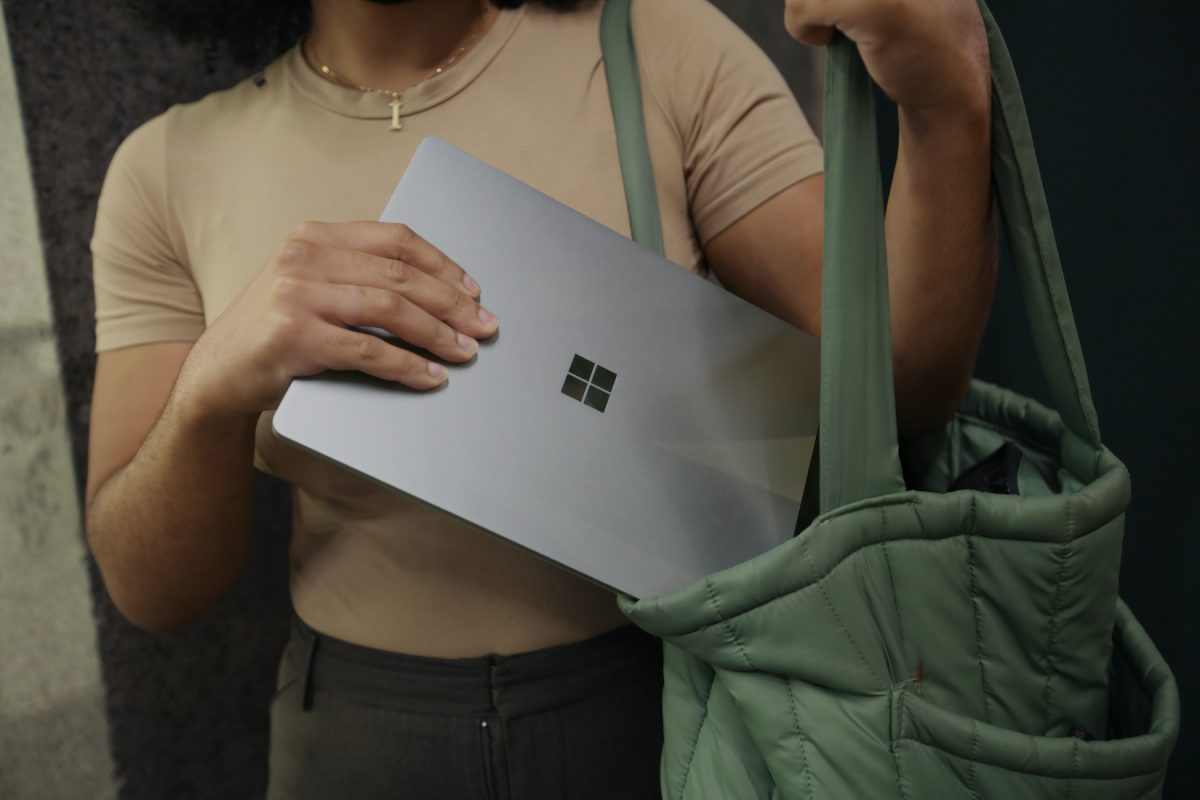Picture this: you're scrolling through your favorite social feed when you stumble upon a life-changing post about saving money for your kid's future. But instead of another boring banking article, you're hit with a mix of wit, wisdom, and genuinely savvy advice on the Best Junior ISA Accounts in 2025. Whether you’re a millennial championing financial freedom for your little one or a Gen Z whiz planning ahead for your future family, this guide has got you covered with all the insider tips, real-deal comparisons, and practical resources you need to make the smartest financial moves.
Best Junior ISA Accounts in 2025 Table of Contents
Navigating Junior ISAs: The Ultimate Guide
What Are Junior ISAs and How Do They Work?
The Revolutionary Shift: What’s New in 2025?
Breaking Down the Best Junior ISA Accounts of 2025
Understanding Fees, Interest, and Investment Returns
Tips for Choosing the Right Junior ISA Provider
Case Studies: Real Families, Real Success Stories
How Do Government Policies Impact Junior ISAs?
Technology and Innovation: The Future of Junior ISAs
Building a Bright Financial Future: Integrated Strategies for Success
Resources and Community Support: Your Next Steps
Expert Opinions: What the Financial Gurus Are Saying
Personalizing Your Junior ISA Strategy: Tips for Success
The Role of Financial Planning in Your Child's Future
Integrating Your Junior ISA with Broader Family Finances
Navigating Junior ISAs: The Ultimate Guide
Junior ISAs have been on the rise as one of the coolest ways to get your child's savings growing with tax-free interest and investment potential. In 2025, the market is buzzing with new account features, innovative offerings, and competitive rates. But what exactly is a Junior ISA? Essentially, it’s a tax-efficient savings account designed for kids, offering parents and guardians a proactive way to secure a brighter financial future for the next generation.
In this guide, we break down everything you need to know—from the basics of how a Junior ISA works to a detailed review of the best accounts on offer this year. We’ll sprinkle in some humor and down-to-earth advice to make sure you’re not nodding off halfway through. Let's get real: saving money might not sound as exciting as scrolling TikTok, but trust us, once you see the potential growth with the right Junior ISA, you'll be hooked!
Whether you’re new to the world of Junior ISAs or a seasoned saver looking to shift gears in 2025, we’re here to provide tips, comparisons, and actionable insights to help you navigate a dynamic financial landscape. So, buckle up and get ready for a fun dive into the world of Junior ISA accounts that promise to turn your child’s future into a financial masterpiece.
What Are Junior ISAs and How Do They Work?
Junior Individual Savings Accounts (ISAs) are specialized savings or investment accounts that allow you to contribute money on behalf of a child. The magic of a Junior ISA lies in its tax-free status—any interest earned or investment gains made within the account are completely tax-free. With annual contribution limits set by the government, these accounts are designed to encourage long-term saving for the future.
There are two main types of Junior ISAs: Cash Junior ISAs and Stocks & Shares Junior ISAs. The Cash Junior ISA is similar to a regular savings account, offering interest on the money deposited. The Stocks & Shares Junior ISA, on the other hand, lets you invest in the stock market, offering the potential for higher returns but also coming with a bit more risk.
The key advantage? Your money, and any gains, are sheltered from taxes until the child turns 18. At that point, the account converts into an adult ISA, and the young saver gets full access to their funds—ready to fuel their future aspirations, whether that’s further education, travel adventures, or even a first apartment.
The Revolutionary Shift: What’s New in 2025?
The world of finance is constantly evolving, and 2025 is proving to be a groundbreaking year for Junior ISA accounts. With fierce competition among UK banks and financial institutions, expect a host of exciting developments designed to make these accounts more accessible, flexible, and rewarding for both parents and kids.
Here are some of the most buzzworthy trends that are turning heads in the market this year:
- Higher Interest Rates: Many providers have upped the ante by offering attractive interest rates for Cash Junior ISAs, making it a no-brainer for safety-first savers.
- Ethical Investment Options: Stocks & Shares Junior ISAs are now embracing ethical and sustainable investment opportunities—allowing you to invest in companies that align with your values, such as green energy and social responsibility.
- Enhanced Digital Platforms: Gone are the days of confusing paperwork. Modern Junior ISA accounts come with user-friendly apps and online dashboards, making it easy to track contributions, monitor growth, and even set savings goals.
- Increased Contribution Limits: Some providers are offering higher annual contribution limits to help boost your child’s nest egg, reflecting the need for a more robust saving culture in today’s uncertain economic climate.
- Flexible Access Options: While funds remain locked until the child turns 18, some fresh features now allow for more nuanced control over contributions and fund transfers, ensuring parents can make real-time adjustments aligned with market trends.
These innovations are not just pretty features; they’re strategic moves that enable savvy savers to harness the full potential of Junior ISAs in a rapidly changing financial ecosystem. Whether you’re a traditionalist or a digital-native, there’s something in store for every type of investor.
Breaking Down the Best Junior ISA Accounts of 2025
Now comes the fun part: the showdown of the best Junior ISA accounts available in 2025. We’ve done the homework so you don’t have to, comparing features, rates, fees, and account flexibility. Here’s a deep dive into the top options that can help set your child up for success:
1. Cash Junior ISA – The Classic Saver's Choice
The Cash Junior ISA remains a perennial favorite due to its low risk and predictable returns. In 2025, several financial institutions have enhanced their offerings with competitive interest rates and smart digital innovations. Key features include:
- Attractive Interest Rates: With rates that rival some high-street savings accounts, you can watch your child’s savings grow steadily over time.
- No Hidden Charges: Transparent fee structures ensure you know exactly what you're paying for—no surprises!
- User-Friendly Accounts: Modern online and mobile banking tools simplify the experience, making it easy to contribute and track your savings progress.
- Flexibility in Contributions: Some providers now assume a more flexible approach to contributions, easing the way for scheduled deposits and one-off boosts when you get a bonus at work.
Ideal for risk-averse savers, the Cash Junior ISA is all about reliable, steady growth. It's the perfect place to start if you’re new to the game and want a solid foundation for your child's future.
2. Stocks & Shares Junior ISA – For the Bold and Visionary
If you’re willing to embrace a little bit of risk for potentially higher returns, the Stocks & Shares Junior ISA might be your cup of tea (or matcha latte, if you prefer). This option lets you invest in the market, ensuring there’s room to maneuver and grow your investment portfolio. Highlights include:
- Diversified Investment Options: From blue-chip stocks to ethical funds focused on sustainability, there’s a smorgasbord of choices.
- Potential for Higher Returns: Historically, equities have offered higher returns over the long haul, making this option a great bet on the future.
- Cutting-Edge Technology: With intuitive apps that provide real-time market updates, you can easily monitor trends and make informed decisions.
- Educational Tools: Many providers offer integrated learning resources, so both you and your child can become more financially literate along the way.
A Stocks & Shares Junior ISA suits families who want to take a proactive role in building a diverse, resilient portfolio. It’s an ideal picking for those who understand the ebb and flow of the market and are ready to weather the ups and downs for long-term gain.
3. Innovative and Hybrid Junior ISAs – The Best of Both Worlds
Can’t decide between safety and growth? Enter the world of hybrid Junior ISA accounts—these innovative products blend the reliability of a Cash ISA with the growth potential of a Stocks & Shares ISA. Not only do they offer a balanced approach, but they also provide:
- Dynamic Asset Allocation: The account automatically adjusts the balance between cash and investments based on market conditions and your predefined risk tolerance.
- Innovative Digital Insights: Advanced platforms analyze performance and automatically provide recommendations to optimize the account's balance.
- Customizable Options: Choose the blend that best suits your risk appetite—whether you lean towards conservatism or want a bit more aggressive growth potential.
These hybrid options are perfect for those who want to hedge their bets. They offer a comforting safety net in volatile times while still allowing your child’s savings to potentially benefit from market upswings.
No matter which account you lean towards, the ultimate goal is the same: setting aside funds that grow tax-free and pave the way for a financially secure adulthood. As we explore the landscape of Junior ISA accounts further, keep an eye out for the subtle differences that might make one option a better fit depending on your family's specific financial goals.
Understanding Fees, Interest, and Investment Returns
Let’s get into the nitty-gritty that you know matters: costs, fees, interest rates, and investment returns. Just like choosing the perfect phone plan or streaming service, you want a Junior ISA that doesn’t gobble up your money with hidden fees while offering meaningful growth.
Fee Structures: What to Watch Out For
Many providers boast no-fee structures, but it’s essential to double-check the fine print. Typical fees may include:
- Management Fees: Annual charges for account management, particularly common with Stocks & Shares Junior ISAs.
- Platform Fees: Costs associated with the digital platform used for trading or monitoring investments.
- Exit Charges: Some accounts may impose fees if you decide to switch providers or transfer funds.
The key is to choose an account that balances competitive fees with robust features. Often, a slightly higher fee might be worth it if the platform offers superior research tools, educational resources, or more flexible investment options.
Interest Rates and Potential Returns
Interest rates for Cash Junior ISAs have been on an upward trajectory. In 2025, it’s not uncommon to stumble upon rates that are a cut above what major banks have offered in previous years. With Stocks & Shares Junior ISAs, the potential returns come with market volatility; however, historical data suggests significant long-term growth possibilities if you have a diversified portfolio.
Remember, while interest rates are crucial for Cash ISAs, Stocks & Shares ISAs rely on market performance. A balanced strategy might involve a mix of the two, especially if you have a long-term horizon for your child’s investment.
Risk vs. Reward: What’s Your Comfort Level?
A fundamental decision when choosing a Junior ISA is understanding your risk tolerance. For those who prefer predictability and steady growth, a Cash ISA might be the best route. But if you're willing to accept some turbulence for potentially higher rewards, a Stocks & Shares ISA could be your ticket to multiplying your child’s nest egg over time.
The exciting new hybrid models in 2025 are changing the game by blending conservative and aggressive strategies. So, even if you’re a cautious saver, there’s scope to experiment with a mix that suits your comfort level and long-term goals.
Tips for Choosing the Right Junior ISA Provider
With so many options available, picking the right provider can feel like choosing between endless streaming services. Here are some tips to help you narrow down the choices:
- Compare Interest Rates and Fees: Look at both the headline interest rates and the fine print details regarding fees. The best deals have transparent pricing.
- Examine Digital Platforms: Is the provider’s app or online dashboard user-friendly? A clean, intuitive interface can make managing your child’s account a breeze, especially for busy parents.
- Read Reviews and Expert Opinions: Community feedback, expert reviews, and third-party financial comparisons can provide valuable insights into the reliability and performance of the product.
- Sustainability and Ethical Focus: For modern savers, investing in sustainable initiatives isn’t just a buzzword—it’s a priority. Check if the Stocks & Shares ISAs offer ethical investment options.
- Future Flexibility and Innovation: Providers who invest in innovative digital tools and flexible account options are poised to deliver a better overall experience. Look for features like dynamic asset allocation and performance tracking.
Remember, the best Junior ISA is not a one-size-fits-all solution—it should align with your savings goals, risk tolerance, and the unique needs of your family. Take your time, do your homework, and choose a product that feels like a true partner on your financial journey.
Case Studies: Real Families, Real Success Stories
To further drive home the benefits of selecting a top-tier Junior ISA, let’s explore a few real-life success stories from families who made the switch in 2025:
Family One: The Steady Savers
Meet Emma and Jake, a young couple passionate about setting up a safe and steady future for their daughter, Lily. They opted for a high-yield Cash Junior ISA, lured by the competitive interest rates and the ease of setting up regular, automated contributions via a sleek mobile app. Over the past three years, Lily’s savings have grown consistently—even during economic ups and downs. Emma quips, “It’s like watching a savings account party, and Lily’s invite is tax-free!”
Family Two: The Bold Investors
Then there’s Rahul, a tech-savvy dad, and his partner Zoe, who decided not to play it safe. They chose a Stocks & Shares Junior ISA that focused on sustainable and tech-driven ethical investments. Although the market had its fair share of roller-coaster moments, their diversified portfolio performed admirably over time, securing a robust growth rate for their son’s future. “Financially speaking, our choice was like giving our son a golden ticket to the future,” Rahul says with a smile.
Family Three: The Hybrid Enthusiasts
Finally, there’s the Martins, a family that couldn’t decide between conservative and aggressive strategies. They wisely opted for a hybrid Junior ISA that automatically rebalanced their funds, providing both steady interest and the occasional stock market win. The Martins report that their account’s built-in flexibility has been a game changer, allowing them to make adjustments seamlessly when market conditions shift. It’s a modern solution perfectly tailored to a modern family.
These stories highlight that regardless of your financial personality—be it cautious, bold, or somewhere in between—the best Junior ISA accounts in 2025 offer something valuable for every family.
How Do Government Policies Impact Junior ISAs?
Navigating government policies can sometimes feel like deciphering an ancient text, but when it comes to Junior ISAs, there are some key points to keep in mind:
- Annual Contribution Limits: The government sets an annual limit on how much money can be contributed. Staying within these limits is essential to maintain the tax-free benefits.
- Tax Efficiency: One of the biggest perks of a Junior ISA is that all gains are tax-free until the child turns 18. This tax shelter is a crucial incentive behind these accounts.
- Regulatory Oversight: Financial regulators ensure the products offered are safe and reliable, which means your child’s savings are in good hands. This regulatory environment fosters innovation while safeguarding consumer interests.
Being aware of these policies not only helps you maximize the benefits of a Junior ISA but also positions you to take advantage of any changes in the financial ecosystem as they arise.
As you plan your child’s financial future, keeping a keen eye on government announcements and financial news can provide you with a competitive edge in making timely adjustments to your savings strategy.
Technology and Innovation: The Future of Junior ISAs
We're living in a digital age where even banking is getting a tech upgrade. The best Junior ISA accounts in 2025 leverage cutting-edge technology to make saving a delightful and engaging experience. Here’s what’s transforming the landscape:
- Real-Time Dashboard: Advanced online platforms provide real-time updates, letting you track progress and analyze performance on the go.
- Automated Contributions: Streamlined functionality for setting up recurring deposits means you can build the savings effortlessly, even when you’re busy hustling through your day.
- Mobile Alerts and Notifications: Stay in the loop with notifications on market changes, account milestones, and personalized tips right in your pocket.
- Interactive Learning Modules: Many providers now offer integrated financial literacy tools that educate both parents and kids about smart money management. After all, teaching your child financial responsibility is the best gift you can give!
Innovation is not just about flashy interfaces—it’s about empowering you to make informed decisions in a fast-changing market. With a user-friendly digital experience, managing a Junior ISA becomes less of a chore and more of an engaging journey toward financial empowerment.
Building a Bright Financial Future: Integrated Strategies for Success
The journey to building a successful Junior ISA account isn’t just about picking the right provider or getting the best interest rates—it’s an integrated approach that involves careful planning, regular monitoring, and a forward-thinking mindset. Here are some strategies to ensure your chosen Junior ISA works at full throttle for your child's future:
- Regularly Review Your Strategy: Markets change and so do your financial goals. Make it a habit to review your account’s performance at least once a year and adjust contributions accordingly.
- Leverage Automated Tools: Use in-app analytics and notifications to keep tabs on performance and stay ahead of market shifts.
- Teach Financial Literacy: Engage your child in the process early by setting up a mini savings challenge or using your provider’s educational tools to instill good financial habits.
- Plan for Milestones: Whether it’s a birthday, graduation, or first job, aligning your savings plan with your child’s life events can provide extra motivation to save more diligently.
Integrating these strategies into your financial life not only enhances your Junior ISA’s potential but also sets the stage for lifelong money management skills. The best part? With the aid of innovative digital resources and community insights, you’re never alone on this journey.
Resources and Community Support: Your Next Steps
In the fast-paced world of savings and investments, having trusted resources and community support is invaluable. Consider tapping into these channels as you refine your Junior ISA strategy:
- Financial Blogs and Podcasts: Stay informed with content from trusted sources that break down market trends, government announcements, and product reviews in an engaging way.
- Online Forums and Communities: Platforms like Reddit, specialized Facebook groups, and dedicated investment forums are a treasure trove of real-life advice, experience-sharing, and peer support.
- Banking and Investment Webinars: Many financial institutions now host free, online seminars that cover everything from market basics to advanced investment strategies tailored for Junior ISAs.
- Local Financial Advisors: Don’t underestimate the power of professional advice. A one-on-one chat with a financial advisor can lend personalized insights that empower you to make confident decisions.
- Mobile Apps and Tools: Leverage tools that help you track contributions, set reminders, and get notified of market changes. These digital assistants can help keep you on pace with your financial goals.
Think of these resources as your financial pit crew—supporting you, cheering you on, and ensuring that each step you take is informed, confident, and forward-thinking. As you embark on your savings journey, remember that a strong community and an arsenal of reliable tools can make all the difference in achieving your financial dreams.
Expert Opinions: What the Financial Gurus Are Saying
Industry experts and financial analysts are buzzing about Junior ISAs this year. Here’s a roundup of their insights and predictions:
- Greater Emphasis on Sustainability: Experts predict that ethical investments will continue to rise in popularity. With more providers offering sustainable portfolios, families can invest in a brighter future—both financially and environmentally.
- Digital First Strategies: Financial technology is set to revolutionize the way we manage our savings. Expect higher levels of transparency, real-time analytics, and interactive learning tools that demystify the complexities of investing.
- Increased Competition Driving Innovation: With more banks entering the space, competition leads to better features, improved interest rates, and more flexible options for all types of savers.
- Long-Term Financial Education: Analysts agree that empowering children with financial literacy from a young age is crucial. Junior ISAs serve not only as a savings vehicle but also as a practical tool for learning about money management.
While every expert’s advice should be taken in the context of personal circumstances, the consensus is clear: Junior ISAs are evolving to meet the demands of a new generation of savers, blending technology, education, and sustainability into one powerful package.
Personalizing Your Junior ISA Strategy: Tips for Success
No two families are exactly alike, and neither are their savings strategies. The beauty of the current market is that you can customize your Junior ISA to fit your unique needs. Here are a few tips to make your account work even harder for you:
- Set Specific Savings Goals: Define clear objectives—be it funding a top university, buying a first car, or serving as seed money for entrepreneurial dreams. Goals bring clarity and motivation.
- Regularly Monitor and Rebalance: The financial world is fluid, so don't be afraid to adjust your strategy as needed. Regular reviews ensure your portfolio and contributions remain in sync with your goals.
- Educate Yourself and Your Child: Leverage digital courses, interactive apps, or even fun financial games that make learning about money a family activity. The knowledge you gain now is an investment in lifelong financial savvy.
- Embrace a Long-Term Mindset: Remember that the magic of a Junior ISA is in the power of compound growth over time. Patience is key—what may seem like a small amount today could blossom into a substantial nest egg down the road.
- Stay Informed: Follow financial news, subscribe to newsletters, and join online communities. Keeping up-to-date with market trends and provider updates gives you a leg up when it comes time to make key decisions.
By tailoring your Junior ISA strategy to your family’s needs, you not only safeguard your child’s financial future but also create a roadmap for smart money management that will serve your entire household for years to come.
The Role of Financial Planning in Your Child's Future
Financial planning isn’t just for Wall Street insiders—it’s for everyone who dreams of a financially secure future. Incorporating a Junior ISA into your broader financial plan is like giving your child the keys to a treasure chest, unlocking opportunities and ensuring that future financial hurdles are easier to overcome.
A comprehensive plan involves setting realistic milestones, diversifying your savings, and periodically revisiting your goals. By integrating a Junior ISA with other saving and investment strategies, you create a robust financial safety net that grows stronger with time.
Imagine being able to sit down with your child one day and show them, not just a bank statement, but a legacy of wise financial choices—a narrative that inspires them to value, preserve, and grow their wealth as they step into adulthood. That's the transformative power of proactive financial planning combined with the right Junior ISA.
Integrating Your Junior ISA with Broader Family Finances
A Junior ISA is a vital piece of the financial puzzle, but how does it fit into your overall family budget? Integrating your child’s savings strategy into a broader financial plan not only reinforces responsible money management but also offers lessons in diversification.
- Budgeting for Contributions: Allocate a fixed percentage of your monthly income to the Junior ISA. Automate the process so that savings grow seamlessly without extra effort.
- Investment Diversification: While a Junior ISA might focus on long-term growth, balancing it with emergency funds, retirement accounts, and other investments can ensure financial stability across all life stages.
- Family Financial Discussions: Making financial planning a regular topic at home not only encourages transparency but also turns saving into a collective project—one that ultimately benefits everyone.
- Leveraging Tax Benefits: Understand how the tax-free status of Junior ISAs meshes with other financial products. A well-rounded plan considers tax implications across all accounts, ensuring that your money works as hard as you do.
By weaving your Junior ISA into your overall financial strategy, you create a more resilient and adaptable plan—a blueprint that grows with your family and meets your evolving needs.
FAQs: Everything You Need to Know about Junior ISAs in 2025
We know you might have some burning questions about Junior ISAs, so here are answers to some of the most common ones:
1. What exactly is a Junior ISA?
A Junior ISA is a tax-efficient savings account for children, allowing contributions to grow free of tax until the child turns 18.
2. How do Cash and Stocks & Shares Junior ISAs differ?
Cash Junior ISAs offer predictable interest returns similar to a savings account, while Stocks & Shares Junior ISAs let you invest in the market with the potential for higher, albeit riskier, returns.
3. Are there any fees involved?
Fee structures vary by provider. While many offer low or no fees, it's always important to check for management or platform charges that could impact your returns.
4. Can I transfer my child's Junior ISA to another provider?
Yes, account transfers are usually possible, though it's important to understand the terms and potential exit fees before switching.
5. What contribution limits should I be aware of?
The government sets an annual contribution limit for Junior ISAs. Make sure to keep your deposits within this limit to maintain tax benefits.
6. How do ethical and sustainable investment options work?
Many Stocks & Shares Junior ISAs now offer funds that focus on ethical or environmentally sustainable companies, aligning your investments with your values.
7. Can my child access the funds before turning 18?
No, the funds in a Junior ISA remain locked until the child reaches 18, ensuring a secure nest egg for the future.
8. Do Junior ISAs offer any digital tools for management?
Modern providers incorporate interactive apps and online dashboards that allow you to monitor and manage the account with ease.
9. How do government policies impact Junior ISAs?
Government-set contribution limits and tax rules are central to the benefits of Junior ISAs, making regular policy updates important for maintaining compliance.
10. Is there a risk associated with Stocks & Shares Junior ISAs?
Yes, since these accounts invest in the stock market, they carry a degree of risk. However, a balanced portfolio over the long term can help mitigate these risks.
Your Roadmap to a Brighter Financial Future
Embracing the opportunities offered by the best Junior ISA accounts in 2025 isn’t just about saving money—it’s about building a legacy. Every deposit, every smart decision, is a building block for a future where your child enjoys the financial freedom to pursue dreams, explore career opportunities, or simply live life on their own terms.
With a range of products that cater to diverse goals—whether you prefer the steady growth of a Cash ISA, the dynamic potential of a Stocks & Shares ISA, or the balanced approach of a hybrid account—you’re empowered to create a savings plan that resonates with your family’s values and aspirations.
The world of Junior ISAs is rapidly evolving, driven by technology, innovation, and an ever-clearer focus on ethical and sustainable financial practices. This comprehensive guide is your launchpad into that dynamic landscape—arming you with the insights, tips, and encouragement to make the best choices for your child’s future.
So dive in, explore the options, and start planning a financial journey that will benefit not just your child, but your family for generations to come. Your roadmap to a brighter future begins with a single, informed choice. Happy saving!













